
By Rick VanSickle
Who would have thought a casual dinner at a long shuttered tavern in Fonthill and a really horrible bottle of Château-Gai Sauterne would be the catalysts for the start of the modern wine industry in Canada?
Well, that’s what happened.
It was 1971 or 1972, Donald Ziraldo can’t quite remember the year, but he and a date along with Karl Kaiser and his wife Silvia were having dinner at the Schnitzel Corner Tavern at Hwy. 20 and Merrittville Hwy. in Fonthill. Kaiser and Ziraldo had already decided that they wanted to start a winery together, but when the waiter placed that bottle labeled “Sauterne” on the table, a wine made from Niagara grapes and bags of sugar, and they tasted it, the reaction was swift and decisive:
“Karl said ‘certainly we can do better than this,’ ” Ziraldo recalls of that historic epiphany.
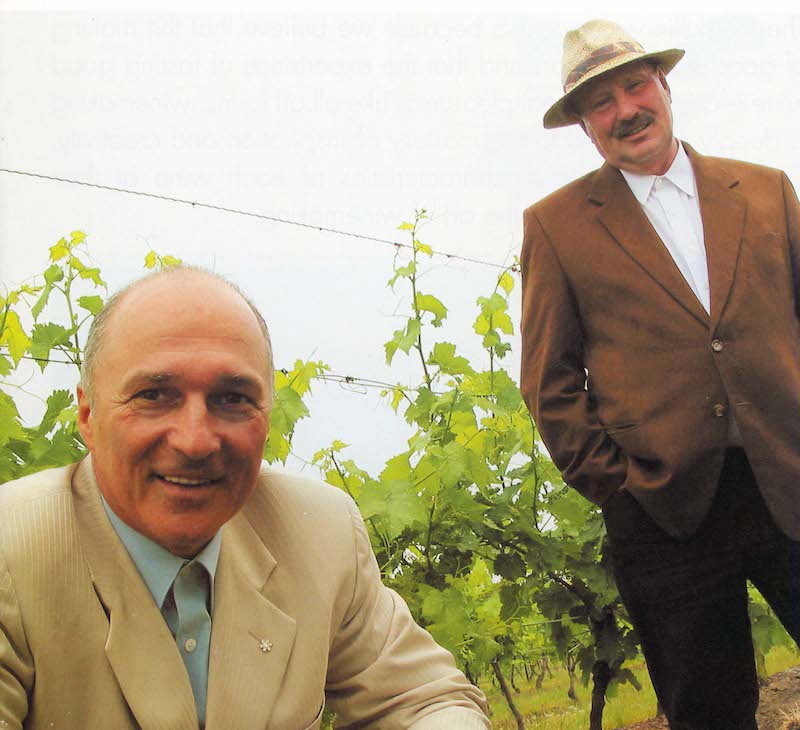
That was the beginning of a long relationship between two vastly different men who shared a singular dream; that of a healthy, vibrant and quality wine industry in Canada built on noble grape varieties that would stand with the best in the world. And Icewine would be their first statement that would let the world know Canada had arrived.
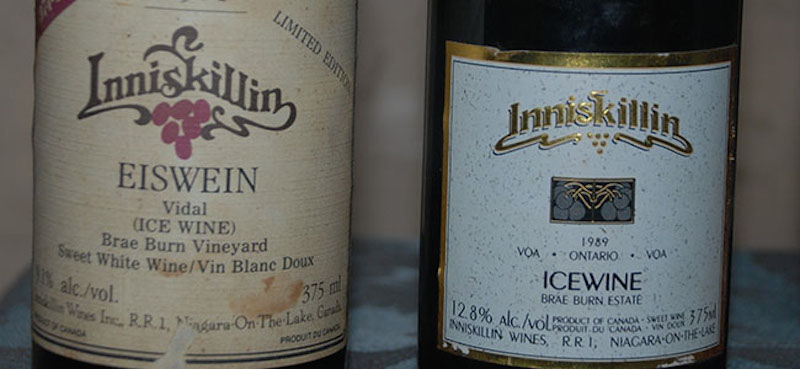
Kaiser and Ziraldo would go on to found Inniskillin Wines Inc. in 1975 after being granted the first winery license in Ontario since 1929. In 1984 winemaker Kaiser harvested his first Icewine, which was bottle as “Eiswein,” from Vidal grapes frozen naturally on the vine at the winery site (Brae Burn Vineyard).
The first attempt to make Icewine by Kaiser was actually in 1983 but the birds ate all the grapes from the vines that were not netted for protection, at least in Niagara.
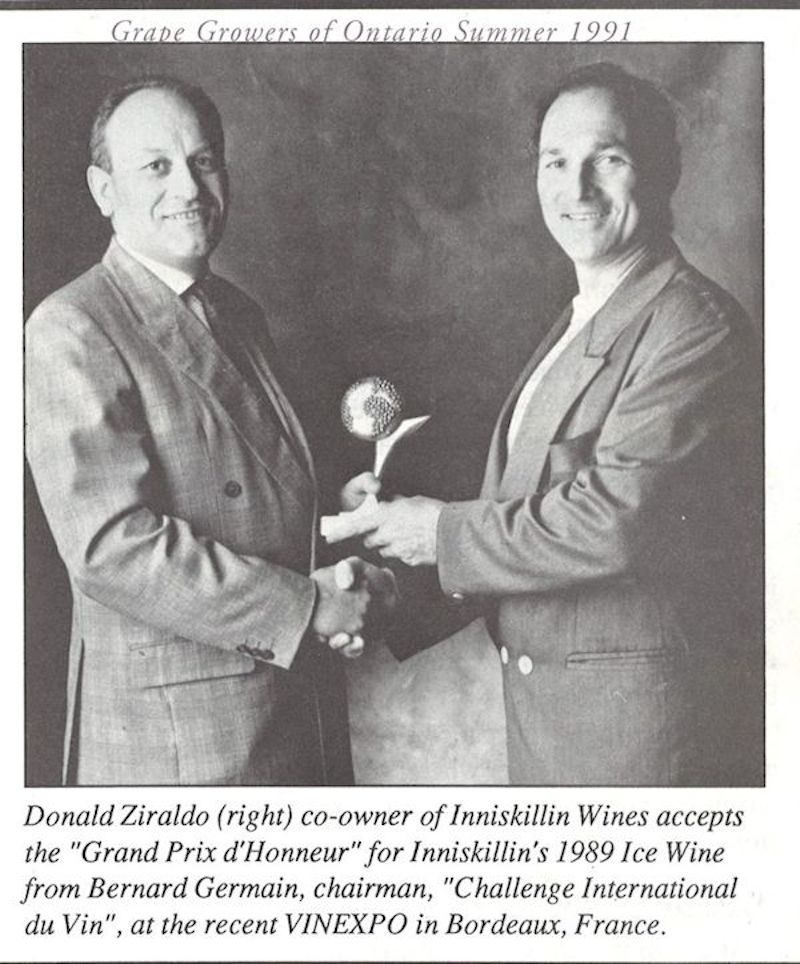
Then, in 1991, things changed forever for the new Canadian wine industry. Inniskillin received the most prestigious award in the wine world at Vin Expo, France — the Grand Prix d’Honneur for Kaiser’s 1989 Vidal Icewine. This was a major turning point, thrusting Inniskillin into the international limelight clearly establishing major credibility as a serious wine producer as well as lifting the profile of Canadian wines at the same time.
It proved to be a brilliant path to take. Both Kaiser and Ziraldo knew that they couldn’t come burst of the gate competing with the world’s best Chardonnay, Pinot Noir, Riesling and Bordeaux varieties, hell, most of those varietals were just being planted — and only by a few daring grape growers. But perfecting Icewine and knowing it could be replicated year after year, it gave the Canadian wine industry the recognition it needed to compete on the world stage not only with Icewine, but later (and to this day) with other styles of wine.
•••
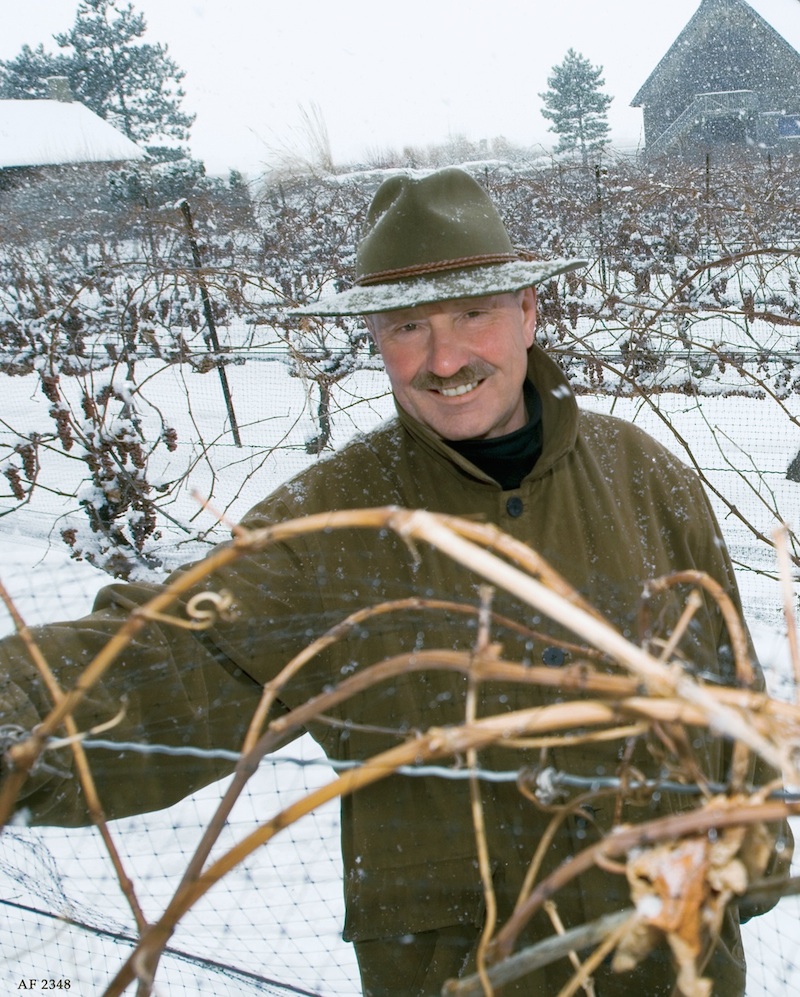
“I have lost a great friend and partner!” That was Ziraldo’s post on his Facebook page on Nov. 24 at 3:29 p.m.
Indeed, the Canadian wine industry, whether they knew Karl Kaiser or not, lost a friend, a mentor, a passionate family man, forever. Inniskillin Winery co-founder Dr. Karl J. Kaiser, an industry pioneer, passed away on Wednesday, Nov. 22. He was 76 years old. It was so sudden, and a shock to his family and friends everywhere.
Note: A more complete obituary on Karl Kaiser is posted here.
A celebration of life for Kaiser will be held from 5 to 9 p.m. Friday, Dec. 8 at The Hare Wine Co., 769 Niagara Stone Road in Niagara-on-the-Lake. Out of respect for Kaiser and what he achieved, I suspect the crowd will be large. Written messages of condolence can be left on Kaiser’s memorial website found here.
In lieu of flowers, the family is encouraging donations to the Dr. Karl J. Kaiser Memorial Fund at Brock’s CCOVI. The fund has been launched in honour of Kaiser’s love of learning and sharing his knowledge. Donations can be made at brocku.ca/donate or by phone at 905- 688-5550 x4190.
Kaiser leaves behind a legacy that is rich, layered and diversified, but for his partner Ziraldo, there is no question in his mind what that legacy will always be.
“Icewine. It’s that simple. He took an old German tradition and brought it to Canada. People now think Canada invented it,” Ziraldo laughs at that. And it’s so true. Icewine was the thin edge of the wedge that built a foundation for all the other Canadian wines that followed.
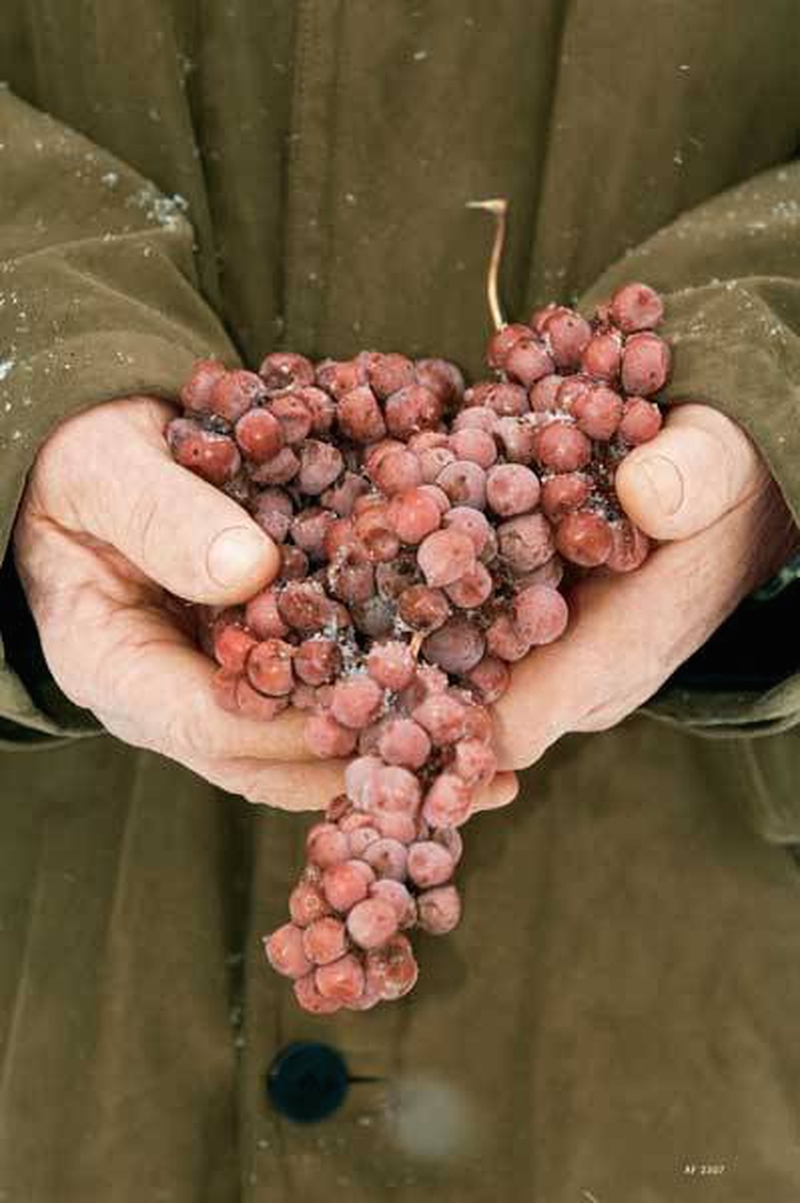
Kaiser made it, and Ziraldo took it to the world at large and made it a commodity that screamed to be in fine restaurants and collectors’ cellars everywhere. It was (and is) a luxury sweet wine style that cannot be replicated anywhere else, not under the strict conditions set forth by VQA regulations; it belongs to Canada, like Burgundy and Bordeaux belong to France. It is proudly ours, thanks to the efforts of those early pioneers like Kaiser and Ziraldo.
If Icewine is to be Kaiser’s legacy, it cannot be said that Icewine was his greatest vinous passion.
“Pinot Noir was his great love,” says Ziraldo. “Pinot was a challenge for him.”
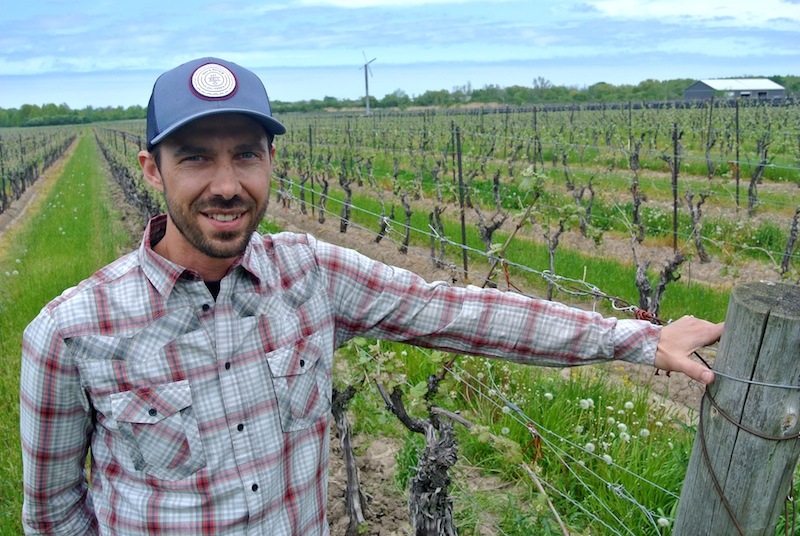
In 1984, Kaiser convinced the Lowrey family, that’s Wes Lowrey above with the original Pinot plantings, to plant Pinot Noir clone 115 on their St. David’s Bench farm. It became the source for the Inniskillin-Jaffelin collaboration sold under the Alliance label. It was amazing Pinot and not being replicated by anyone else at the time. It became a source of fruit for the Le Clos Jordanne project (now, sadly, shut down).
The original five rows of that famed Pinot vineyard are still farmed by the Lowrey family and the grapes divided by five different wineries — the Lowrey’s own Five Rows Craft Wine, Thomas Bachelder, Adamo, Leaning Post and Fielding Estate. It remains some of the most profound and personalble Pinots made in Ontario and Canada.
•••
B.C. wine writer John Schreiner offered this description of Kaiser in the updated edition of the book that Kaiser and Ziraldo wrote called Icewine:
“Born in Austria in 1941, Kaiser intended to be a teacher. He experienced vineyard work while in the novitiate of a Cistercian monastery there, and later, while helping in the vineyard owned by the grandfather of his future wife. He immigrated to Canada in 1969, planning to teach science after earning a chemistry degree and doing post-graduate work in microbiology. It was a choice of studies that equipped him well when his career switched to winemaking.”
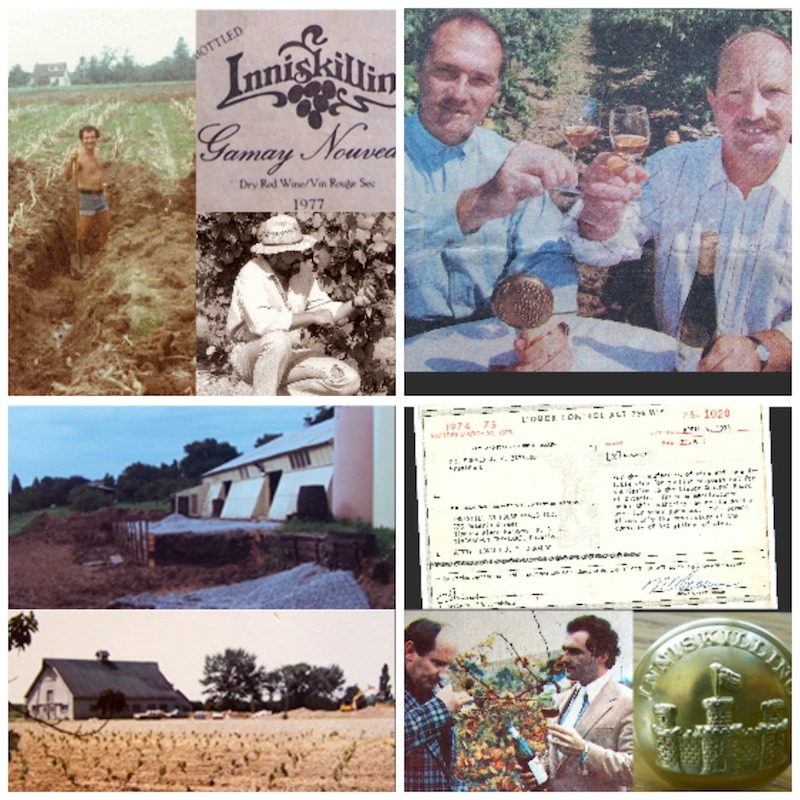 Kaiser’s daughter Magdalena remembers those early days fondly. She cherished her time, beginning when she was just five years old, helping her “papa” making wine at home and then several years later at what she knew only as “the winery,” referring to Inniskillin.
Kaiser’s daughter Magdalena remembers those early days fondly. She cherished her time, beginning when she was just five years old, helping her “papa” making wine at home and then several years later at what she knew only as “the winery,” referring to Inniskillin.
“My dad was a very hands-on person,” Magdalena says. “And we’d always help out at crush. Wine was a cultural thing for us and the winery was part of our lives.”
Magdalena and her siblings, Andrea and Max, all work either directly or indirectly in the Ontario wine industry. Magdalena is director of public relations for the Wine Marketing Association of Ontario, Andrea is marketing director at Niagara’s Reif Estate, and Max, who runs his own company, Maximilian Kaiser Design, creates many of the label designs on Ontario wine bottles (including the first Alliance label).
Growing up at the Kaiser house meant meeting an endless parade of visitors from around the world who came to exchange ideas or just learn from Karl about wine and what he was achieving in the new wine region of Ontario.
“For him, wine was to share with people,” says Magdalena. “He opened his heart and home to so many people. He was so incredibly generous.”
But what Magdalena remembers most about her father is this: “His number one priority in life was his family.”
•••
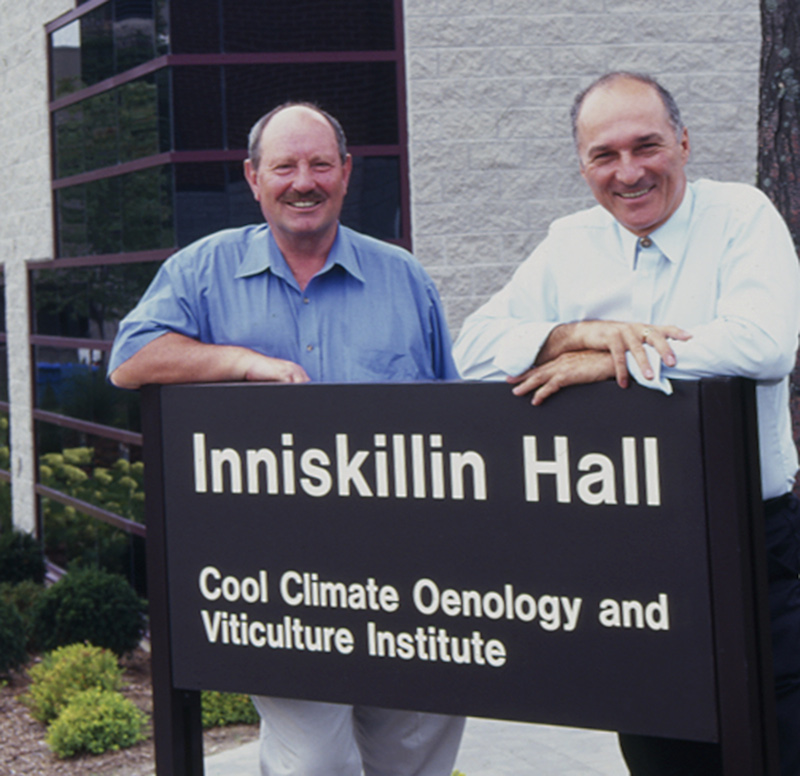
It was at Kaiser’s beloved Brock University that he left an indelible mark.
The university community was saddened by the death of a national figure and longtime associate who helped forge Brock’s leading role in grape and wine research, while also turning Niagara into a world-renowned wine region.
Kaiser’s impact on the Niagara and Canadian wine industry is unmatched, and it was through his guidance and drive that Brock created the Cool Climate Oenology and Viticulture Institute (CCOVI) and the Oenology and Viticulture (OEVI) undergraduate program in the 1990s, said CCOVI Director Debbie Inglis.
“Karl truly believed that a successful wine region needed a research institute to support it,” said Inglis. “And he was passionate about passing his knowledge on to the next generation.”
Kaiser’s love of wine research and his connection to Brock, where he graduated from in 1974, was something he took pride in.
“I always felt very honoured by being a part of Brock’s CCOVI as an affiliate,” Kaiser wrote in his final email to CCOVI Communications Specialist Sarah Moore recently. “It always has been great enjoyment being part of CCOVI in this way.”
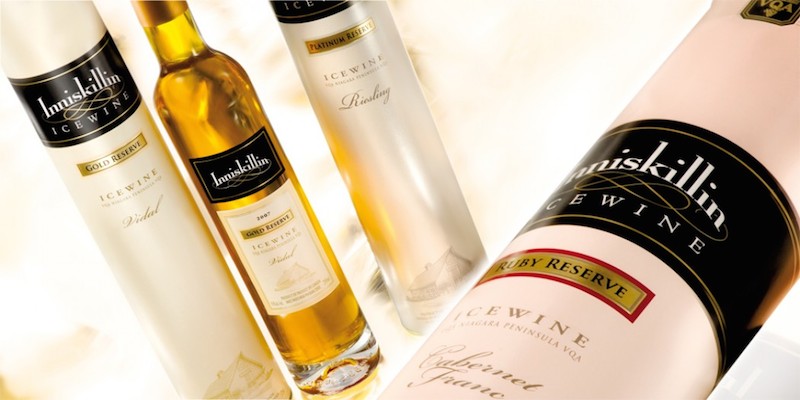
Kaiser was given the Order of Ontario in 1993, was awarded an honorary doctorate from Brock in 1994, and was the recipient of Brock’s Distinguished Alumni Award in 2005 and the Faculty of Math and Science Distinguished Alumni Award in 2009. Kaiser was also honoured with Her Majesty Queen Elizabeth II’s 50th Anniversary Golden Jubilee Award and the Ontario Wine Society Lifetime Achievement Award in 2005.
“He was never comfortable being in the limelight and taking acknowledgement for all that he achieved and what he put forward,” said Inglis. “He was a very understated individual.”
It was Kaiser’s desire for wine research and knowledge that, together with other industry pioneers, led to the development of CCOVI in 1996. He was part of the industry group that developed the concept for the institute that year, as well as the OEVI undergrad program that followed in 1997.
Kaiser developed the OEVI wine chemistry course and was its first instructor in 1998. He became a CCOVI Professional Affiliate and returned on a regular basis to give lectures and seminars, the videos of which are still among the program’s most downloaded.
Rob Power, a student in that first wine chemistry course, said it was both cool and slightly intimidating to be taught by one of the country’s best and most well known winemakers.
“The best parts of the class were when Karl went off script. That’s when we learned some real winemaking at the feet of the master,” said Power, who is now the winemaker at Creekside Estate Winery. “He kept us all enthralled by slipping in anecdotes and tips.”
Kaiser was also a researcher, working with Inglis and others to understand more about Icewine fermentation and production.
“Karl co-wrote a book and was an active researcher, but not many people realize it because he was such a humble individual,” she said. “He was a teacher and a mentor. “For me personally, he believed in me as a scientist and that meant the world to me. It really launched my career in Icewine research.
•••
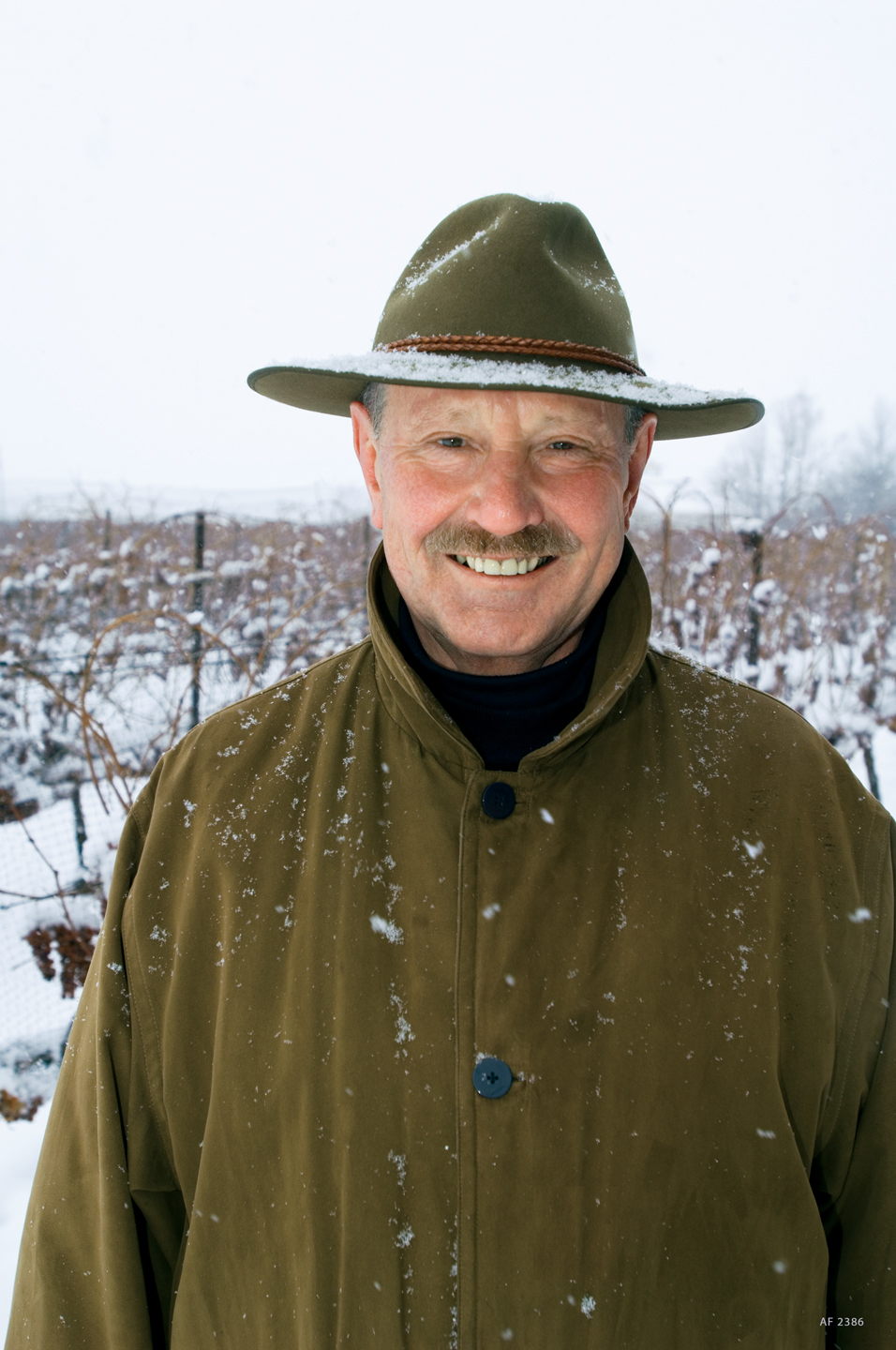
This great man, Dr. Karl Kaiser, will be feted on Friday (Dec. 8) at The Hare Wine Co. from 5 to 9 p.m. Come raise a glass. He deserves at least that from those of us who appreciate a great glass of Canadian wine.


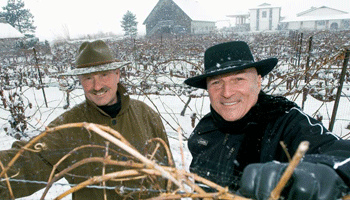




Comment here